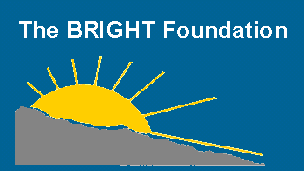|
|
|
Where
the Hope Lies... Overview
of Opportunities |
| |
| Neuro
Developmental Reorganization |
| |
| |
| Bio-Mechanical
Reorganization |
| |
| Neuro
Regeneration |
| |
|
Injury
Types
|
| |
| |
| |
|
|
What
people are saying about us...
You're
creating a wonderful resource... from a
mother.
I am a Pediatric Physiatrist and I found
your site very informative and pleasingly very
balanced... from a MD.
Based your summary of
the extant research I believe you have a solid grasp on
the current state of knowledge and areas of important
need... from a PhD.
Read
more here
If you are the owner of any copyrighted material on this
website, please contact us. It is not our intention to use any copyrighted
material without permission.
|
|
|
| Much
of the information we have received concerning drug
treatment comes from one of our most experienced
Scientific Advisors, Mike Johnston. Trails are
underway to study the effects of anti-cholinergic drug
treatment for kids with Extrapyramidal brain
injuries.
Below
is a summary of Mike's research interests and some
interesting ideas that he has. In addition a
very good website on drug treatment can be found here
(the website is paid for by the drug companies):
http://www.wemove.org/kidsmove/
Michael V.
Johnston, M.D.
Research Scientist
Dr. Michael
Johnston is a research scientist at Kennedy Krieger
Institute. He is a professor of Neurology and Pediatrics at
the Johns Hopkins University School of Medicine.
|
|
| Biographical
Sketch |
Dr. Johnston
attended Franklin and Marshall College before going
on to medical school at the University of
Pittsburgh, from which he graduated cum laude in
1971. His postdoctoral training at the Johns Hopkins
Hospital included work in Pediatrics, Neurology,
Pharmacology, and Pediatric Neurology. After
teaching positions and research work at the
University of Michigan Medical School and University
of Michigan Hospitals, Dr. Johnston returned to
Baltimore in 1988. Today he is Senior Vice President
and Chief Medical Officer at Kennedy Krieger
Institute, as well as director of both KKIís
Division of Neurology & Developmental Medicine
and KKIís Neuroscience Laboratory. Dr. Johnston is
an attending physician at both Johns Hopkins
Hospital and Kennedy Krieger Children's Hospital. |
|
| Research
Summary |
|
Dr. Johnston and his group, including Drs. Mary
Blue, Mary Ann Wilson and Alec Hoon, perform
clinical and basic laboratory research focused on
developing therapies to reduce brain injury in
infants and children as well as to promote recovery
by enhancing brain plasticity. His laboratory was
one of the first to describe the mechanisms through
which the neurotransmitter glutamate triggers brain
injury from lack of oxygen, trauma and other
insults. If administered early enough, drugs that
block the effects of glutamate on one of its
receptors called the NMDA receptor can totally
prevent brain injury in infants.
His group also
recognized that the major role that glutamate plays
in injury during development is related to the
important role it plays in normal development.
During development, glutamate released from nerve
terminals helps to refine the synaptic connections
that link neurons into circuits. These mechanisms
are enhanced during development to shape circuits in
response to environmental stimuli and formation of
memories, a process called "neuronal
plasticity." When the brain is injured, these
circuits can be damaged by too much glutamate, much
like a computer's chips can be damaged by a power
surge during a thunderstorm.
Because injury
and plasticity are two sides of the same processes
in brain development, Dr. Johnstonís research has
grown beyond mechanisms of injury into processes
that control brain plasticity. For example, he
studies how cerebral cortex is reassigned in
response to injury, which is the major mechanism for
recovery of function from stroke and other
disorders. Even learning and long-term memory are
based on these same mechanisms, since it depends on
neurons exciting each other with glutamate and
changes in synaptic connections. Numerous disorders
associated with mental retardation are caused by
genetic flaws in these systems, and Dr. Johnston
recently completed a project focused on a defect in
a neuronal signaling process involved in a form of
X-linked mental retardation.
So Dr.
Johnstonís initial pursuit of ways to reduce brain
injury in infants and children with medications has
led to a broader understanding of processes involved
in plasticity and recovery from injury. The immature
brain's glutamate signaling system, which is
enhanced compared to the adult in order to shape its
complex neuronal circuitry, proves to be its
"Achillesí Heel" when it is injured.
Accordingly, Dr. Johnstonís research has proved to
be relevant to a broad range of neurodevelopmental
disabilities including cerebral palsy, mental
retardation, lead poisoning, genetic metabolic
disorders, and epilepsy as well as brain injury from
lack of oxygen and trauma.
|
|
